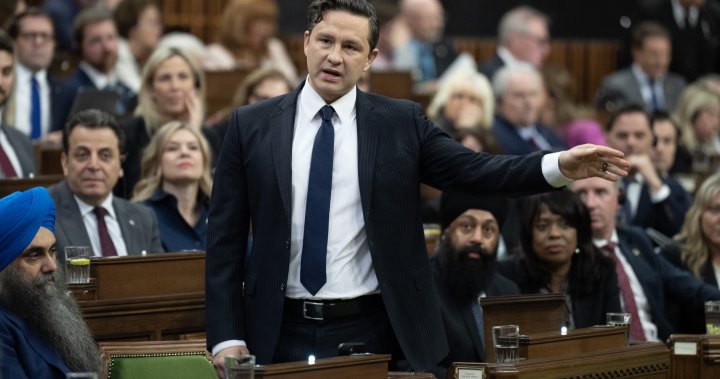The recent incident involving Conservative Leader Pierre Poilievre being ejected from the House of Commons for using unparliamentary language has sparked a debate among Canadians about who decides what words are considered unparliamentary and how they are determined. While many Conservatives criticized the decision as biased, Immigration Minister Marc Miller emphasized that in Parliament, the rules are the rules and must be followed. The House rules focus on how language is used rather than specific terms, with the Speaker judging each situation according to the circumstances.
The rules of the House of Commons state that personal attacks, insults, and obscenities are not allowed, although they may be permissible when used in a generic sense or in reference to a party. Poilievre crossed the line when he called the federal government’s policies and Prime Minister Justin Trudeau “wacko” and refused to retract the term. The Speaker’s decision to bar him from the chamber was based on whether the language used created disorder in the chamber, as well as other factors such as tone, manner, and provocation. While there is no official list of unparliamentary words codified into law, the Speaker determines what language is unacceptable based on the context.
Certain words and phrases have been ruled unparliamentary in the past, with the list dating back to 1989 and including terms like “liar,” “lies,” curse words, and accusations of low intelligence. Members using these terms have faced consequences such as ejection from the chamber or admonishment. However, some once unparliamentary terms have been heard in recent question periods without intervention from the Speaker, suggesting a more flexible approach to enforcing the rules. The list also includes specific dates when rulings were made on certain words, emphasizing the historical context of parliamentary language.
The library of Parliament contains a list of words and phrases that have been ruled unparliamentary, with some terms carrying more severe consequences than others. Accusations of deception, dishonesty, distortion of facts, or deliberate falsehood have all been considered unparliamentary according to the 1989 list. Members accused of using these terms have been criticized for their conduct in the House, with the Speaker intervening to maintain order and decorum. The rules emphasize that language used in Parliament should be respectful and not intended to create disorder or incite conflict among members.
While the debate over unparliamentary language continues, the Speaker plays a crucial role in determining what words are deemed unacceptable based on the context in which they are used. The rules prioritize maintaining order and decorum in the House of Commons, with personal attacks, insults, and obscenities generally not tolerated. Members are expected to adhere to these rules and show respect for their colleagues, even when engaging in vigorous debate over policy matters. The incident involving Poilievre serves as a reminder of the importance of following parliamentary etiquette and respecting the authority of the Speaker in upholding the rules of the House.


